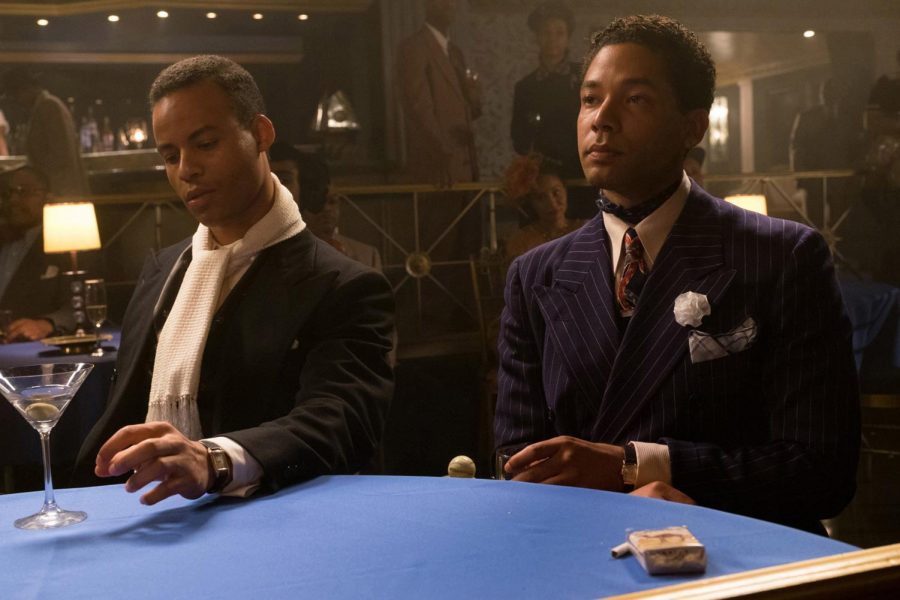‘Marshall’ is supreme disappointment
The new biopic “Marshall” was released on Oct. 13 and has received generally positive reviews from critics. The film currently carries an 83 percent approval rating on Rotten Tomatoes.
Nov 6, 2017
Thurgood Marshall was one of the most influential figures during the Civil Rights Movement, alongside the likes of Malcolm X, Rosa Parks and Martin Luther King Jr. Only, instead of public demonstrations and marches, Marshall’s own fight to end racial discrimination largely took place in the courts.
In fact, Marshall’s excellence in the courtroom eventually led him to serving as the first African American justice on the U.S. Supreme Court — a position he held for more than 20 years.
Given the man’s incredible influence, it makes sense that in the new biographical film “Marshall,” director Reginald Hudlin (“House Party”) makes no real attempt to offer an all-encompassing view of Marshall’s life. Instead, Hudlin opts to focus on one of the first cases of the eponymous lawyer’s career.
The film, then, almost exclusively revolves around a 1941 case in which Marshall (Chadwick Boseman) attempts to defend Joseph Spell (Sterling K. Brown), a black man accused of raping an affluent white woman.
Unfortunately, this narrative concentration does little to capture the sheer magnitude of the legendary lawyer’s life, resulting in a middling courtroom drama that ultimately fails to be what could have been a touching tribute to a true American icon.
Directing: 2/5
In terms of visual design, “Marshall” comes across as an unfinished work with flashes of brilliance that are altogether smothered by overwhelming directorial mediocrity.
To be sure, there are a few isolated instances of remarkably framed compositions — whether it be an inward tracking shot through a window overlooking a backyard or a darkly lit courthouse hallway with Marshall leaning against the wall, deep in thought.
However, those moments are few and far between.
Indeed, throughout much of the film, entire scenes are often composed of uninspiring shot/reverse shot sequences that both bore and bewilder the audience. In fact, some scenes are so totally lacking in visual coherence that the characters in them never even appear in the same frame together at the same time.
In addition to poorly executed framing, “Marshall” also suffers from often illogical editing choices — namely, the overabundance of cuts. Hudlin rarely exhibits restraint in how many cuts he uses in a given scene and almost never gives any of his admittedly uninteresting compositions the chance to resonate with his audience.
Writing: 2/5
Although “Marshall” solely focuses on one case in the titular lawyer’s budding career, the film still feels extremely rushed.
One would think that by narrowing the focus of the narrative to such an extreme degree, the filmmakers would then have sufficient time to fully explore the historical context of the events that unfold, as well as the central characters at hand.
However, “Marshall” doesn’t seem to know whether it wants to be an exciting courtroom drama or an illuminating biopic, resulting in rushed and uneven pacing, as well as tonal shifts that frequently distract from the overall story.
Sometimes, these shifts in tone are as subtle as a misuse of the musical score, while others are more egregious, such as cheap attempts at comic relief that disrupt an otherwise intense or dramatic scene.
The greatest detriment to the film, though, is its refusal to fully explore the protagonist’s backstory and personal life. Little to no real effort is made to transform Marshall into a fully developed and emotionally complex character.
For example, Marshall’s relationship with his wife “Buster” is only briefly touched upon in the film so that more of the runtime can be devoted to the various goings-on inside the courtroom.
Other facets of Marshall’s personal life are similarly left unexplored and, as a result, the lawyer is almost always kept at arm’s length from the audience.
Acting: 3/5
In spite of the lackluster direction and the rushed screenplay, “Marshall” does feature some truly inspiring performances — namely, from Chadwick Boseman as Marshall himself.
Boseman brings a combination of defiant verve and shrewd stoicism to his character that adds a considerable amount of depth that the emotionally lacking screenplay fails to provide.
Josh Gad turns in a respectable portrayal as Sam Friedman, the insurance lawyer who reluctantly teams with Marshall to defend Joseph Spell. Although Gad is guilty of overacting in a number of scenes, his performance is largely successful due to his undeniable charm.
Sterling K. Brown is especially memorable as Spell, who proves to be the most sympathetic character in the film, thanks to a handful of heartbreaking scenes.
Lastly, Kate Hudson, while not remarkable, is certainly serviceable in her role as Eleanor Strubing — the woman who claims that she was raped by Spell — by creating an aura of distrust and suspicion about her character.
Overall: 2.5/5
Although “Marshall” doesn’t quite live up to the significant stature of the man who inspired it, the film does succeed as an entertaining, if not somewhat routine, courtroom drama.
Still, it hurts knowing that “Marshall” could’ve done so much more for the late lawyer’s memory and ultimately failed to do him justice.









